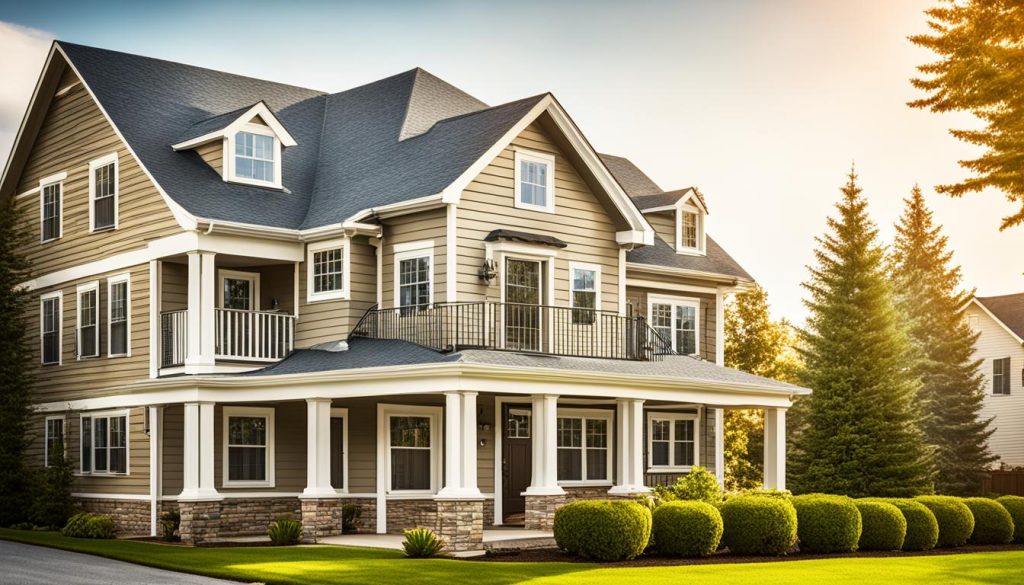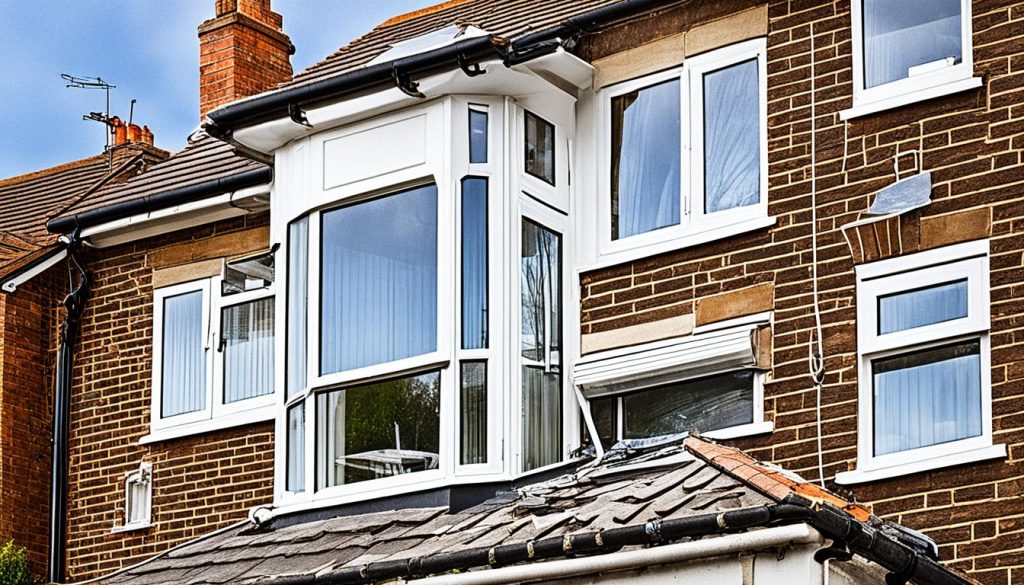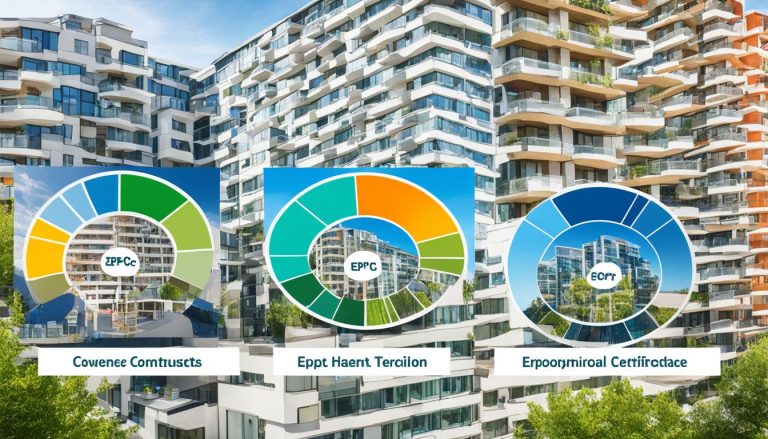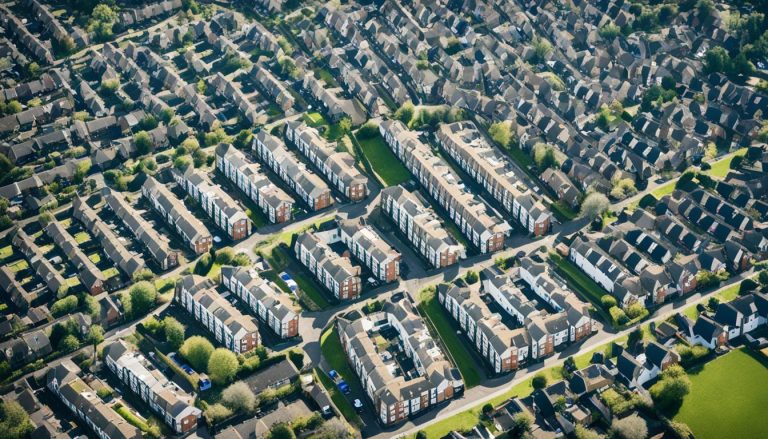Home insurance is key for property owners in the UK, but do you really need it? The answer is not simple. While it’s not a must-have everywhere, there are times when it’s a good idea or even needed.
For those with a mortgage, home insurance is mandatory in the UK. Lenders want you to have buildings insurance to protect their investment. This covers damage or destruction to the property.
Even if you own your home outright, getting home insurance is smart. It offers protection against unexpected events like fires, floods, or theft. This can help pay for repairs or replacements.
If you have a leasehold property, your lease might require buildings insurance. Or, the freeholder might arrange it and bill you. So, in these cases, home insurance is a legal obligation.
To sum up, home insurance isn’t a must in the UK, but it’s a smart choice. It’s especially important if you have a mortgage or a leasehold property. Having the right home insurance gives you peace of mind and protects your home’s value.
Understanding Home Insurance
Home insurance is key to protecting your home, your most valuable asset. In the UK, it usually includes buildings and contents insurance. It’s vital to know the differences to get full coverage and peace of mind.
What is Buildings Insurance?
Buildings insurance covers the cost to fix or rebuild your home’s structure. This includes walls, roof, floors, and foundations. It also covers permanent items like kitchens, bathrooms, and wardrobes. If damage happens from fire, storms, floods, or other issues, this insurance can help fix your home.
What is Contents Insurance?
Contents insurance protects your personal items at home. This can be furniture, electronics, clothes, and more. If your things get stolen, damaged, or destroyed, this insurance can help replace them. It’s especially useful for renters, as it covers their items even if they don’t own the building.
Both types of insurance cover various events like fire, storms, floods, theft, and vandalism. Having both policies means your property and belongings are protected. This gives you the financial security you need if something unexpected happens.
| Coverage | Buildings Insurance | Contents Insurance |
|---|---|---|
| Physical Structure | ✓ | ✗ |
| Permanent Fixtures and Fittings | ✓ | ✗ |
| Personal Belongings | ✗ | ✓ |
| Covered Perils | Fire, storms, floods, etc. | Fire, storms, floods, theft, vandalism, etc. |
Is Home Insurance Mandatory for Landlords?
In the UK, many landlords wonder if they must have home insurance. The answer is, it’s not a legal must, but it’s a smart move to get a landlord insurance policy.
Landlord insurance covers the building and the landlord’s contents. It also covers loss of rental income if the property can’t be lived in. Some mortgage providers for buy-to-let properties might ask for insurance as part of the deal.
Even though it’s not a must, there are strong reasons for landlords to get a good landlord insurance policy:
- It protects the rental property’s structure, like the roof, walls, and fixtures.
- Landlord contents insurance covers the landlord’s furniture, appliances, and more.
- Rental income protection helps if the property can’t be rented out and the landlord loses income.
- Liability insurance covers the landlord against claims from tenants or visitors for injuries at the property.
Getting landlord insurance isn’t a legal need, but it’s a wise choice for property owners who rent out. It shields landlords from financial risks and keeps their rental business running well.
| Insurance Type | Coverage |
|---|---|
| Landlord Buildings Insurance | Protects the structure of the rental property, including the roof, walls, and fixtures. |
| Landlord Contents Insurance | Covers any furniture, appliances, or other items the landlord provides for the tenant. |
| Rental Income Protection | Provides financial coverage if the property becomes uninhabitable and the landlord loses rental income. |
| Liability Insurance | Protects the landlord from claims made by tenants or visitors for injuries sustained on the property. |

Do You Need Buildings Insurance?
Home insurance needs can change based on your mortgage status. If you have a mortgage, your lender will often ask for buildings insurance. This is key to protect your home investment. It makes sure your home can be fully rebuilt if it gets damaged or destroyed.
If You Have a Mortgage
If you have a mortgage, your lender will usually want you to have buildings insurance. This is a common rule to protect the lender’s investment in your property. The insurance should cover rebuilding your home, including demolition, site clearance, and architects’ fees.
If You Don’t Have a Mortgage
Even if you own your home outright without a mortgage, getting buildings insurance is still a good idea. It’s not legally needed, but fixing or rebuilding your home after damage or destruction can be very expensive. Buildings insurance offers the financial protection your property needs.
Whether you have a mortgage or not, buildings insurance is a smart choice for your home and finances. It’s a key home insurance requirement that gives you peace of mind. It ensures you’re covered in unexpected situations.

Determining the Rebuild Cost
Home insurance often focuses on the rebuild cost of your property. This is the cost to rebuild your home if it’s completely destroyed, like by fire or a natural disaster. It’s different from your home’s current market value.
Knowing the rebuild cost is key to having enough insurance. If you don’t, you might not have enough money to rebuild if disaster strikes. This could leave you in a tough spot financially.
Using Online Rebuild Cost Calculators
There are online tools to help estimate your home’s rebuild cost. The Rebuild Cost Calculator from the Association of British Insurers (ABI) is one such tool. It looks at your home’s size, age, and materials to give you a rebuild cost estimate.
Consulting a Chartered Surveyor
If your home has special features or is a listed building, consider a professional survey. A chartered surveyor can give a more precise rebuild cost assessment. They consider your property’s unique details.
It’s important to check and update your rebuild cost regularly. Prices change due to inflation and material costs. Having the right insurance coverage means your home is well protected.
Additional Home Insurance Policies
Standard home insurance is key, but there are more policies to consider for extra protection. These options are great for those in risky areas or with special concerns. They can cover your property and belongings better.
Flood insurance is a must for homes in flood zones. Subsidence insurance is vital in areas with unstable soil or ground movement. These policies shield your home from disasters and environmental issues.
Accidental damage cover is great for unexpected events like spills or DIY mistakes. Some insurers also offer alternative accommodation if you need to move out while fixing your home.
Other policies include coverage for your home’s outside features and liability insurance. These options might cost more but offer great protection and peace of mind.
Think about what you really need before choosing extra insurance. Tailoring your coverage to your situation ensures your home and belongings are fully protected.
| Additional Home Insurance Policy | Purpose |
|---|---|
| Flood Insurance | Protects against the financial impact of flooding in high-risk areas |
| Subsidence Insurance | Covers damage caused by ground movement or soil instability |
| Accidental Damage Cover | Protects against unexpected mishaps, such as spills or breakages |
| Alternative Accommodation Cover | Provides financial assistance if you need to temporarily relocate during home repairs |
| Boundary Wall and Fence Cover | Protects external structures on your property |
| Liability Insurance | Covers legal and compensation costs if someone is injured on your property |
| Legal Expenses Cover | Helps with the costs of legal disputes related to your home |

Saving Money on Home Insurance
Keeping a home can be costly, but smart homeowners can cut their insurance costs. By learning about the different options, you can save on premiums without losing coverage. This makes your home more affordable.
Start by buying only the cover you really need. Work out your home’s rebuild cost and the value of your contents accurately. If you overestimate, you’ll pay for more than you need.
Combining your buildings and contents insurance with one provider can also save you money. Many insurers give discounts for bundling policies. This means you pay less for your insurance overall.
Boosting your home’s security can also lower your premiums. Installing top-notch locks and alarms shows insurers your home is less likely to be broken into. This could mean you pay less for insurance.
Choosing a higher excess can cut your insurance costs too. This means you pay more when you make a claim, but your premiums go down. It’s a trade-off that can save you money over time.
Paying your premium all at once can lead to more savings. Some insurers offer discounts for upfront payments. This saves them money, which they pass on to you.
By trying out these tips, homeowners can lower their insurance costs. This makes insurance more affordable without losing the protection for your home and stuff.
Factors Affecting Home Insurance Cost
Home insurance premiums can change due to many factors. Knowing these can help homeowners make better choices and find cheaper coverage.
The rebuild cost and value of your home greatly affect insurance prices. Insurers want to make sure they can rebuild your home if it’s totally destroyed. The age, materials used in building, and location of your home also matter. Older or riskier homes usually cost more to insure.
How secure your home is can also change your insurance rates. Homes with better security, like alarms and strong locks, are seen as less risky. This can mean lower insurance costs. Your history of making claims can also affect your rates. If you’ve made claims before, you might pay more now.
The coverage you choose and extra policies, like flood or accidental damage protection, also play a part. More coverage usually means a higher premium.
Whether you pay your premiums monthly or yearly can also affect the cost. Monthly payments might be easier on your wallet, but they often come with extra charges. This can make them more expensive than paying yearly.
Understanding these factors helps homeowners find the right balance between coverage and cost. This ensures they get the protection they need without spending too much.
| Factor | Impact on Home Insurance Costs |
|---|---|
| Rebuild Cost and Home Value | Higher rebuild costs and home values typically lead to higher premiums. |
| Property Age and Construction | Older or high-risk construction materials may result in higher premiums. |
| Home Location | Properties in high-risk areas, such as flood-prone regions, can face higher home insurance costs. |
| Security Measures | Homes with enhanced security, such as alarms and secure locks, may qualify for lower premiums. |
| Claims History | A track record of previous claims can lead to higher insurance costs. |
| Coverage Level | More comprehensive policies typically come with higher premiums. |
| Payment Frequency | Monthly payments often incur a surcharge, resulting in higher overall costs compared to annual payments. |
Knowing these key factors can help homeowners make better choices. They can find more affordable coverage that meets their needs.
Conclusion
Home insurance isn’t a must in the UK, but it’s a smart choice for homeowners and landlords. It covers the cost of fixing or rebuilding your home if it gets damaged. Contents insurance also protects your personal stuff.
If you have a mortgage, your lender will likely ask for buildings insurance. Landlords need special insurance for their rental properties. Knowing about the different types of insurance, figuring out the rebuild cost, and finding ways to save can help homeowners protect their homes.
The main home insurance insights and takeaways are the need for buildings and contents insurance. Homeowners with a mortgage must have it. Many things can change how much you pay for insurance. By understanding this home insurance overview, homeowners can make smart choices to protect their homes and belongings. This gives them a clear home insurance summary for their situation.
FAQ
What is the difference between buildings insurance and contents insurance?
Buildings insurance covers fixing or rebuilding your property’s structure. This includes things like garages, sheds, and fences, and replacing items like pipes and cables. Contents insurance covers your personal stuff inside the home, like furniture and clothes.
How do I determine the correct rebuild cost for my home insurance?
You can use online calculators, like the one from the Association of British Insurers, to estimate the rebuild cost. But, if your property has special features or is listed, get a professional survey from a chartered surveyor for a more accurate rebuild cost.
How can I save money on my home insurance premiums?
You can save on your home insurance by only buying what you need, combining buildings and contents insurance, fitting security devices, agreeing to a higher excess, and paying the full premium at once instead of monthly.






